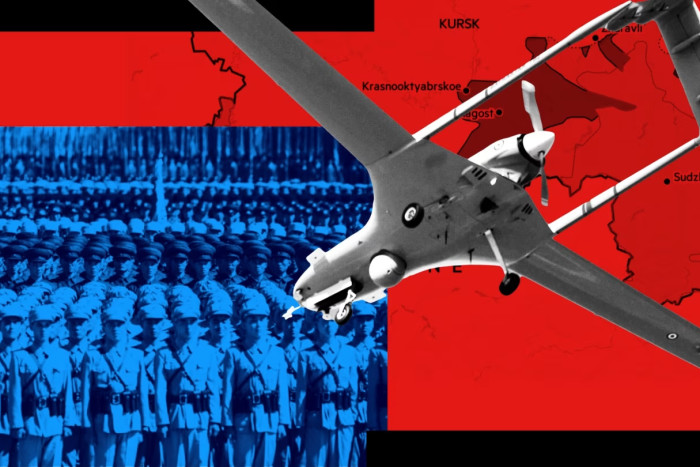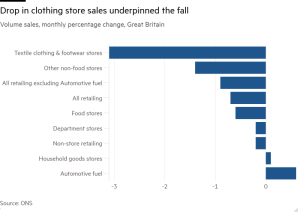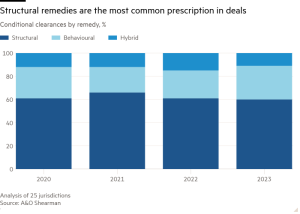China’s ‘rich list’ of billionaires shrinks again

This article is an on-site version of our FirstFT newsletter. Subscribers can sign up to our Asia, Europe/Africa or Americas edition to receive the newsletter every weekday. Explore all of our newsletters here
In today’s newsletter:
-
China’s dwindling ‘rich list’
-
US and Taiwan to discuss ‘double taxation’ burden
-
Is Russia using North Korean troops as ‘cannon fodder’?
Good morning. China is losing billionaires as government crackdowns, economic woes and depressed equity markets take their toll.
The number of dollar billionaires in the country has fallen by more than a third in the past three years, according to a “rich list” compiled by research group Hurun.
Since hitting a peak of 1,185 in 2021, Hurun said the number of super-rich had been reduced to 753. The 36 per cent decline has exceeded a 10 per cent fall in the renminbi’s value against the dollar over the same period.
The list has undergone rapid churn, with the old guard of wealthy property developers decimated by a collapse in China’s once-booming property market.
There is also a new name atop this year’s rich list: Zhang Yiming, head of ByteDance. With a fortune of $49bn, the 41-year-old founder of the company that owns TikTok and its Chinese equivalent Douyin is China’s richest person.
Here are the country’s 10 richest billionaires — and more news from China below:
-
Luckin Coffee plots US expansion: The country’s largest coffee chain, Luckin Coffee, is planning to enter the US market and undercut rivals including Starbucks with its low-priced drinks.
-
Brewing tech war: China has detained a South Korean chip engineer on espionage charges, Beijing confirmed yesterday, escalating tensions between the east Asian neighbours over the critical semiconductor industry.
And here’s what else I’m keeping tabs on today:
-
Economic data: Australia publishes inflation data, Japan releases trade statistics, and the US and EU report advance third-quarter GDP.
-
Companies: Results are due from BYD, China Construction Bank, Industrial & Commercial Bank of China, Tokyo Gas and Hitachi.
Five more top stories
1. The US and Taiwan are preparing to negotiate an agreement that would remove the obligation for each other’s companies to pay tax in both jurisdictions. “Double taxation” has been a drag on bilateral investment flows between the two countries, and Taipei has long pushed for an agreement on the issue to improve economic ties with the US.
2. PwC’s business in Asia shrank over the past year after scandals caused the Big Four accounting firm to lose clients in China and forced it to sell its government consulting arm in Australia. The firm on Monday reported a 12.7 per cent decline in Asia-Pacific profits for the year ended June 30, offsetting growth in the Middle East and Europe.
3. HSBC chief executive Georges Elhedery has insisted that his plan to divide the bank’s operations into “eastern” and “western” sections is not a step towards a formal split. Elhedery made the comments as the bank reported a rise in pre-tax profits and a share buyback of up to $3bn.
-
Adani Enterprises: The flagship business incubator owned by Indian tycoon Gautam Adani reported a more than seven-fold surge in quarterly profit fuelled by accelerated expansion in green energy and airports.
-
Alphabet: Profit at the parent company of Google jumped 34 per cent in the third quarter, as the US search giant reported strong growth in cloud computing.
4. Aid to Gaza has fallen to its lowest level since the war began, despite the US warning Israel that military assistance could be at risk if conditions did not improve. The Biden administration wrote to the Israeli government on October 13 giving it 30 days to “surge all forms of humanitarian assistance” in the strip. But humanitarian officials say that conditions have deteriorated still further since the leaked letter was sent.
5. Saudi Arabia’s sovereign wealth fund plans to further scale back the share of its international investment, drawing a line under a multibillion-dollar global spending spree. The allocation shift is a sign of the $930bn Public Investment Fund’s ambition to divert more of its financial firepower towards a domestic economy facing a decline in oil revenues.
News in-depth

Kyiv is on high alert as it awaits the possible entry of North Korean forces into Russia’s war against Ukraine as soon as this week, in what would be the first intervention by a foreign country’s army in the conflict. But Ukrainian intelligence officials have questioned the quality and fighting ability of the North Korean arrivals, believing they could be used as “cannon fodder” by the Russians.
We’re also reading . . .
Chart of the day
The Chinese auto market, once lucrative for European carmakers, is now highly competitive and the country is exporting more electric vehicles. As today’s Big Read explains, Europe’s car crisis is mostly made in China.
Take a break from the news
With Art Week Tokyo beginning next week, don’t miss gallerist Atsuko Ninagawa’s guide to the many cultural offerings scattered across the city.

#Chinas #rich #list #billionaires #shrinks




